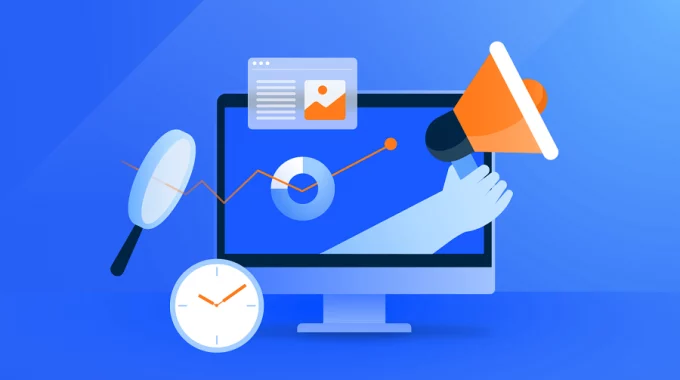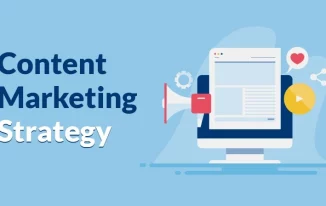People now frequently use digital media platforms to learn about, compare, and obtain the goods they want and desire. In addition, a significant portion of the world's active internet users logs onto digital media platforms every day for several hours. So, these platforms expose them to a wide range of goods and services.
In light of the widespread infatuation with digital media, an effective digital media strategy has become necessary for businesses. As a result, companies are increasingly emphasizing digital media marketing more than conventional methods of promoting their brands.
A way to connect companies with potential customers online is through digital media planning. It comprises tactics used by businesses to increase their customer bases and raise brand recognition using digital media.
So, here in this article, we have given you a comprehensive media planning guide. You will learn everything you need to know about effectively strategizing and leveraging digital media platforms for your business. Let's get started!
Understanding Media Planning
Marketing professionals utilize a process called media planning to decide where, when, and how to broadcast their sponsored content and advertisements. Typically, they try to post in a way that will increase engagement and return on investment.
A well-planned strategy underlies effective marketing, which is realized through a carefully executed media plan. Research, identification, analysis, comparison, planning, and working within any particular client's budget are all components of media planning.
Some businesses may outsource media planning to external organizations, such as a media agency. Others may prefer to keep everything in-house. Media agencies typically have substantial experience and expertise in delivering advertisements to the right audiences across the most appropriate platforms.
Along with account management, brand planning, and creative development, media planning is one of the four major disciplines in advertising. Media planners are also in charge of continuously improving performance throughout a campaign.
Media planning is frequently delegated to a media company with expertise in reaching the relevant audiences with advertising on the finest media channels. They must take into account the advertised service or product, the ideal target market, and the marketing campaign objectives.
Benefits Of Media Planning
Current marketing strategies frequently call for the use of several media platforms. A data-driven media plan gives marketers centralized information across all platforms.
It facilitates the process of campaign assessment and aids in the optimization of campaigns. In addition, media planning benefits the following areas of content development and distribution:
- It helps you gain a deeper understanding of your target audience to strategize how to approach them with your content effectively.
- It aids in choosing the media platforms and channels via which you will publish your material.
- It gives an insight into choosing when and how often to publish and promote your content.
- It helps you follow the newest media trends and technological developments.
- It keeps within your budget while producing, sharing, and publishing interesting and engaging content.
- It analyzes your media planning strategy to determine its effectiveness.
What Involves in A Media Planning?
Let's go over the processes in the media planning procedure so you can start creating a plan for your company.
Marketing Goals
It involves your desired outcome, such as boosting revenue or raising brand recognition, which becomes the marketing goal. It includes your explicit, quantifiable goals and the outcomes the media plan will produce. The goals include taking into account the budget and the intended audience.

A Marketing Issue
Every media strategy begins with a problem. It includes the client's first issue in their business operations and wants to address it.
It can include issues such as the lack of audience interaction on their social media accounts and not having enough time and resources. It may also include not being able to keep up with the current trends.
Media Planning
These are the real implementation concepts that will have an impact on the client's existing state of operations and aid in their goal-achieving.
The media planner's suggested techniques will include a thorough strategy for how to employ the best media mix; geographic coverage; scheduling; reach and frequency; creative elements; emotional appeals; and flexibility. It takes into account the budget and the target audience.
Why Do You Need Media Planning?
The initial phase of an advertising campaign's execution is often media planning. It serves as a guide for all advertising agencies in implementing their media strategies. A plan provides direction for the action, and it is the first step in carrying out any important task.
Once you have a plan, you can follow it by carrying out the steps. You need media planning for the following reasons.
It Ensures the Best Resource Utilization
Advertising is quite expensive, and advertising agencies may use existing resources more effectively by using media planning. The process of media planning entails choosing a variety of media for a set period.
It aids the marketer in reaching the broadest target audience for the least amount of money. Without media planning, the marketer may choose expensive media that may not have adequate coverage of the target market.
It Helps Attain Your Advertising Goals
Media planning fulfills the organization's marketing and advertising goals. It includes decisions like choosing the right medium and the timing of advertising. These goals shape the future of the organization and help it strategize in its desired direction.
The choices the organization makes help the business reach its advertising goals. It may include reaching the target market and boosting sales as a result.
Choosing The Correct Media
The marketer ensures that the medium they choose is compatible with the target audience's characteristics. For example, television and digital platforms are forms of acceptable media if the target audience is adolescents.

You can choose print media if the intended audience is literate. Professional journals and periodicals are suitable media if the target audience is a specialized professional group.
Allows You To Leverage Various Media
Combining several media guarantees extensive coverage of the target audience. It increases the likelihood of attaining advertising goals. You may not reach the intended audience through a single medium. An effective media mix offers broad coverage of the target audience at the lowest possible cost.
Media planning makes sure to allocate funds to high-intent customers while also laying the groundwork at each stage of the customer journey. It is crucial to ensure that you don't miss any chances of reaching out to the right audience.
Budget Allocation For Advertising
Media planning helps you decide the amount of money you need to allocate to various media. In addition, it assists the advertising manager in efficiently distributing the advertising budget among various media types.
The media mix determines the ideal audience. It aids the advertising manager in effectively distributing the overall advertising budget across all media.
Ensures You Are in Control
Some performance requirements in media strategies are set in stone for the intended audience's coverage. It determines whether real coverage complies with the criteria or not. Such standards assist management in assessing the media's efficacy.
When coverage falls short of expectations, advertising managers may thus come up with some new media vehicles or media kinds in the future. They may also take any other necessary action to overcome the inefficacy. Media planning, therefore, aids in exerting control over the media.
Makes Sure Advertising is Released At The Right Time
Only when advertisements are displayed at the appropriate moment can they guarantee the finest outcomes. Therefore, media scheduling is a component of media planning. It determines the timing and location of media advertisements.
It makes sure that commercials are shown more frequently during the peak season and less frequently during the off-peak season. It also makes sure that the commercials are presented to the target audience at the most opportune time.
Uses Previous Performance to Inform Judgments About The Future
Media control is facilitated by media planning. Some performance standards, like performance estimates using historical data or scrutinizing their rivals' campaigns in a media plan, are set in stone.
These projections aid in assessing the media's efficacy by indicating whether or not actual coverage matches the projections. If it isn't, advertising managers might consider different media types or media vehicles for their next campaigns.
How To Create An Effective Media Planning Strategy?
While developing a media strategy, media planners must consider both the company's objectives and the demands of the target market. So, to ease your job of creating an effective media plan and make your campaigns successful, we have gathered some essential aspects of media planning. Check them out below!
Determine The Intension of The Media Planning
Your marketing objectives and goals serve as the primary impetus for a multi-channel strategy.
It may include boosting brand recognition, increasing the number of people that fill out your website's forms and converting them, or something else altogether. No matter what it is, make sure you are clear about your plan for accomplishing your objective.
In terms of attracting new prospects, gaining more customers, or retargeting leads that initially escaped your media plan, having defined goals helps this process along.
You can begin with SMART objectives for your media strategy. SMART stands for Specific, Measurable, Attainable, Relevant, and Time-Bound. Then, you can use it to better track and maximize the impact of your suggested plan.
Before starting your job, it's critical to decide on these objectives so that you have a media strategy that provides a clear direction for you and your team. In addition, it will enable you to strategize for the long term and enhance the potential of your plans.
Who Are Your Target Audience?
You need to promote it to those who are interested in your content. These are your target audiences and the customers you want to attract. You determine your target audience based on market research and actual information about your current clients.
You can draw in the most valuable customers to your business when you are clear on the kind of buyer your media campaign needs to target. Setting your target audience is the first step in determining who you are trying to reach with your media campaign.
You must learn about your target customers and the most effective ways to contact them before making decisions about the specifics of your media plan.
When you know your ideal customer, you can create a targeted audience of people interested in buying the goods or services you offer. They are those people who are most likely to respond to your advertisements.
Get The Right Media Planning Tools
Some software solutions can handle some of the labor-intensive tasks for you. For example, your company may use a variety of tools to create, plan, schedule, and gather conversion metrics.
You can plan, manage, and evaluate your media spending all in one location with online tools. These are some of the best options available for small, medium, and large businesses who want a thorough media plan their entire team can view and understand.
You can also use these tools to see whether the media buying is accomplishing its goals. In addition, these tools allow you to collaborate with other members of your company. Finally, you can also use them to keep all of your media planning files, tasks, and communications in one location.
Establish A Budget for The Campaign
Media planning helps you determine the budget of your project. By using budgeting tools, you may receive an insight into all expenses associated with your media strategy.
Budgeting may consume a significant amount of your time, depending on the size of your project, because it requires managing many stakeholders. After all, many individuals must approve your budget plan.
A media buyer typically asks for quotes from certain media outlets or sets a budget for paid social media marketing. Additionally, be careful not to blow through your entire budget and preserve a reserve set aside for emergencies.
Related Post: Top 10 Social Media Management Tools 2022
Get More Insight Through Market Research
Market research helps you learn more about your target market and the media environment in which you are launching your advertisements. Additionally, this entails keeping an eye out for rival campaigns and what they are doing about the goals you have for your own.
Every effective media plan is built on solid market research. A rival might have already started providing a solution for any issue your audience may have.
Therefore, it is critical to identify what your client can supply to offer a superior option to what they currently have. However, before developing unique methods, you must first understand how your products or services stack up against your rivals.
Because of this, marketers conduct extensive market research that considers every aspect of products and marketing. You should look at the campaigns and brand awareness of your rivals. It will help you identify profitable marketing niches for your target market and new prospective clients.
Develop A Media Strategy
You need an effective media strategy now that you have a hold of everything you need to make the campaign work.
A media strategy comprises the number of impressions, the price per million clicks, and the requirements for creative creation. It also includes the precise media outlets that are optimal for communicating a message.
To increase clicks and replies, it is important to ensure that the banner advertises real pictures and engaging messages. The criteria for creative development account for these strategies.
Media planning determines the optimum strategy to reach target audiences. It gathers all the necessary information, including marketers' intended goals, creative development requirements for the actual advertising data from targeting technology, and accessibility to particular ad exchanges.
Determine The Frequency And Timing
It's crucial to plan the amount of content your audience will encounter and how often. You need to deliberate on the frequency of content to maximize ad views without alienating the client's desired audience.
A person often needs to see your advertisement several times before it makes an impact on them. Therefore, your media plan should be optimized to reach the largest possible audience with the greatest possible frequency.
Additionally, you should avoid over-advertising to the same person. Your intention is not to annoy your customer but to persuade them. Additionally, it is a waste of money that you could have used to increase the frequency with others.
Related Post: How to Monetize Your Social Media Page
Analyze Campaign Performance And Make Improvements
The most crucial media planning phase starts after the campaign launch. Your media planner will assess and meet measurable objectives by monitoring interaction, including click-through rates in sent emails and internet form sign-ups.
Marketers can understand the best strategies for increasing engagement and revenue by analyzing performance. They can then refine the current campaign and increase the effectiveness of the next efforts.
Monitoring, tracking, and analyzing performance is one of the most crucial elements in developing a media planning strategy. For marketing programs to yield the most return on investment, constant management is necessary.
Conclusion
The majority of effective marketing efforts have a solid media plan. Media planning is crucial to reach the proper audience and present the message at the appropriate moment. But it comes with a considerable financial burden as well. Therefore, every poor choice may lead to heavy expenses.
Agencies may assist their customers in becoming more successful by seeing trends as they develop. The ROI is increased as marketing teams keep within the budget.
Agencies can identify the most effective partners and advertising channels by using up-to-date, precise data. You can utilize everything we have discussed in this article to leverage your media planning to achieve great success.





